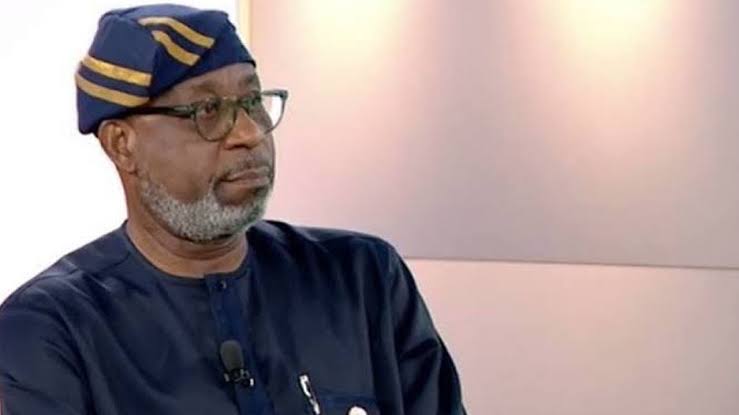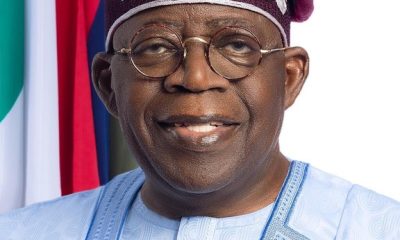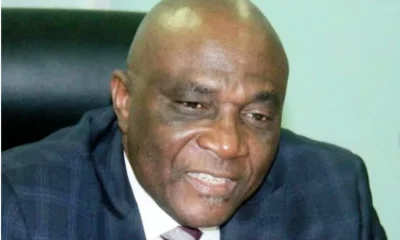Headline
World Leaders Eager To Meet With Tinubu At Paris Summit – Alake

No less than four foreign leaders have requested to meet with President Bola Tinubu in Paris, France where he is expected to participate in the New Global Financial Pact Summit organised by President Emmanuel Macron.
This is according to Dele Alake, Special Adviser to the President on Special Duties, Communication and Strategy, who spoke to the media on the essence of the summit on Wednesday.
Alake said the countries expressing interest to expand economic cooperation are France, the United States, Switzerland among others, as President Tinubu works to network in a bid to attract greater foreign investment to the country.
“The President wants to network with international finance corporations, institutions, countries that are well healed that would facilitate or that could facilitate direct foreign investment into Nigeria,” Alake said.
He recalled that in the recent past, a lot of international investors exited Nigeria because of the restrictive currency policies, but owing to the recent bold moves taken by the President in the area of the economy, foreign nations and investors have indicated more interest in the affairs of Nigeria in shoring up the country’s economy.
President Tinubu, who is making his first trip out of the country as President, on Tuesday arrived Paris, France for the two-day summit.
He was received at the airport by Ambassador Kayode Laro and other top government officials from the Nigerian Embassy and French Ministry of Foreign Affairs, after the plane touched down at 6:47pm local time.
During his time in Paris, the President, according to Alake, will join world leaders to review and sign a New Global Financial Pact that places vulnerable countries on a priority list for support and investment, following the devastating impact of climate change, the energy crisis, and the COVID-19 pandemic.
Headline
Fagbemi warns against obstructing EFCC from performing its lawful duty

The Minister of Justice, Lateef Fagbemi, SAN has warned against obstructing the Economic and Financial Crimes Commission (EFCC) from carrying out its lawful duty .
Fagbemi’s warning is contained in a statement in Abuja.
“This is a matter of very grave concern, it is now beyond doubt that the EFCC is given power by the law to invite any person of interest to interact with them in the course of their investigations into any matter, regardless of status.
“Therefore, the least that we can all do when invited, is not to put any obstruction in the way of EFCC, but to honourably answer their invitation.
“A situation where public officials who are themselves subject of protection by law enforcement agents will set up a stratagem of obstruction to the civil and commendable efforts of the EFCC to perform its duty is to say the least, insufferably disquieting’’.
He added that running away from the law will not resolve issues at stake but only exacerbate them.
“Nigeria has a vibrant judicial system that is capable of protecting everyone who follows the rule of law in seeking protection.
“I therefore encourage anyone who has been invited by the EFCC or any other agency to immediately toe the path of decency and civility by honouring such invitation instead of embarking on a temporising self-help and escapism.
“This can only put our country in bad light before the rest of the world’’.
He said institutions of state should be allowed to function effectively and efficiently.
“I stand for the rule of law and will promptly call EFCC, and indeed any other agency to order when there is an indication of any transgressions of the fundamental rights of any Nigerian by any of the agencies’’.
NAN reports that the EFCC had on Wednesday warned members of the public that it was a criminal offence to obstruct officers of the Commission from carrying out their lawful duties.
Section 38(2)(a(b) of the EFCC Establishment Act makes it an offence to prevent officers of the Commission from carrying out their lawful duties. Culprits risk a jail term of not less than five years.
The warning , the EFCC said, became necessary against the background of the increasing tendency by persons and groups under investigation by the Commission to take the laws into their hands by recruiting thugs to obstruct lawful operations of the EFCC.
On several occasions, the anti graft agency said, operatives of the Commission have had to exercise utmost restraint in the face of such provocation to avoid a breakdown of law and order.
Headline
Unknown Gunmen Abduct Channelstv Reporter In Port-harcourt

Some unknown gunmen have kidnapped Joshua Rogers, the ChannelsTV reporter in Port-Harcourt, the Rivers State capital.
Politics Nigeria learnt that Rogers was picked up close to his residence at Rumuosi in Port Harcourt and to an unknown destination by the gunmen around 9pm on Thursday, April 11.
The reporter was driving his official ChannelsTV branded car when the hoodlums accosted, pointed a gun at him and took him away in the same vehicle.
Rogers was said to be returning from his official assignment in Government House after a trip to Andoni for a government event when the incident happened.
Already, the gunmen were said to have contacted his wife and demanded a N30million ransom for bis release.
His cameraman confirmed the incident and appealed to his abductors to set him free unconditionally.






















